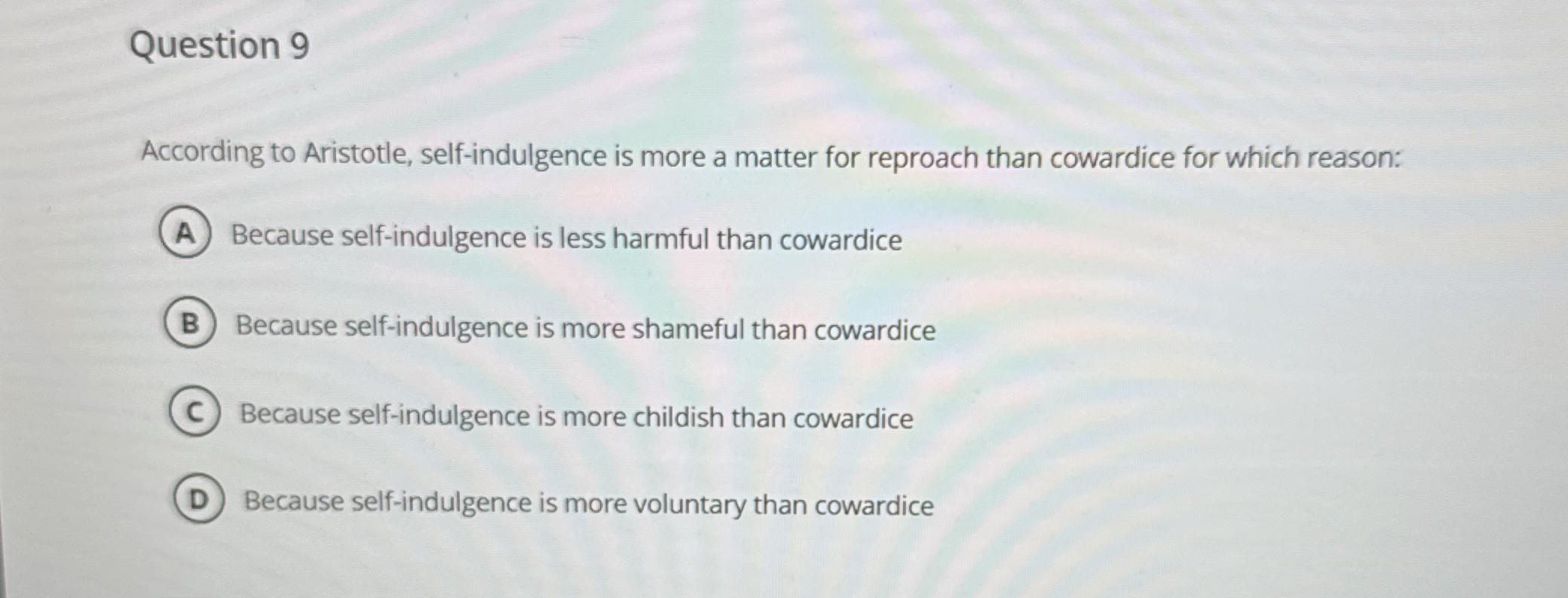According to Aristotle, self-indulgence is more a matter for reproach than cowardice for which reason?

Understand the Problem
The question is asking which of the provided reasons explains why Aristotle considered self-indulgence more worthy of reproach than cowardice. Understanding Aristotle's views on ethics and the nature of vices is crucial to selecting the correct answer.
Answer
D: Because self-indulgence is more voluntary than cowardice.
The answer is D: Because self-indulgence is more voluntary than cowardice. According to Aristotle, self-indulgence is driven by pleasure, whereas cowardice is driven by pain. Since pleasure doesn't destroy a person's nature like pain does, self-indulgence is seen as more voluntary and thus more deserving of reproach.
Answer for screen readers
The answer is D: Because self-indulgence is more voluntary than cowardice. According to Aristotle, self-indulgence is driven by pleasure, whereas cowardice is driven by pain. Since pleasure doesn't destroy a person's nature like pain does, self-indulgence is seen as more voluntary and thus more deserving of reproach.
More Information
Aristotle's view on self-indulgences reflects his broader ethical framework, which emphasizes the importance of reason and virtue in guiding human actions. He believed that people are more responsible for actions they undertake willingly and with awareness.
Tips
A common mistake is to focus on the consequences or the social perception of the actions, rather than the underlying principles of voluntariness and motivation as highlighted by Aristotle.
Sources
- The Nicomachean Ethics :: Book III (cont.) - nothingistic.org - nothingistic.org
- Self-indulgence is more voluntary than cowardice: comparison of the self-indulgent man to the spoilt child. 12. Self-indulgence is more like a voluntary state ... - blackwellpublishing.com
- Nicomachean Ethics by Aristotle - The Internet Classics Archive - classics.mit.edu
AI-generated content may contain errors. Please verify critical information